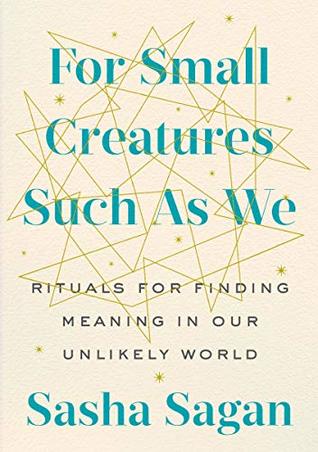More on this book
Community
Kindle Notes & Highlights
by
Sasha Sagan
Read between
October 9, 2020 - February 1, 2021
Usually the words mythology and myth imply inaccuracy, but as Karen Armstrong writes in her book A Short History of Myth, “A myth was an event which, in some sense, had happened once, but which also happened all the time.
In another of her books, Fields of Blood: Religion and the History of Violence, she wrote, “A myth is never simply the story of a historical event. Rather it expresses a timeless truth underlying a people’s daily existence. A myth is always about now.”
Armstrong calls this concept “everywhen.” Nothing could be more “everywhen” than the revolving of the Earth around the sun. It’s the closest thing to a literal everywhen we are likely to experience. It’s been going on for 5 billion years, and in all likelihood will continue for billions more.
The winter solstice is also the anniversary of my father’s death. He died in the early hours of December 20, when the stars shone the longest.
chapter sixteen
Death
“It’s the sound that kills me,” Jon said as we left my great-aunt Frieda’s funeral years ago. A series of thumps that signal finality. Of all the turning points in a life, death begs most for ritual. Many of these are elaborate, but the simplest ones sometimes carry the most weight.
We pretend these rituals are for our dead, but they are for the living, for us.
They all pull me back to the original heartbreak of my life: the loss of my father. One of the last things he said to me was “I’m sorry.” I could not understand, for many years, why he could possibly be apologizing to me. I should have been apologizing to him. He was the one who was in so much pain. He was the one who was dying. But he understood what I was too shocked to grasp. This would be the defining event of my life. Every other loss, every other heartbreak, would reopen this wound. And even the very best moments of my life—any future successes, my wedding, holding my newborn baby for
...more
My parents taught me that even though it’s not forever—because it’s not forever—being alive is a profoundly beautiful thing for which each of us should feel deeply grateful. If we lived forever it would not be so amazing. It doesn’t mean loss isn’t scary, it doesn’t mean it’s not hard. But for me, it has helped.
In Breaking the Spell, Daniel C. Dennett wrote, “Pulled by longing and pushed back by disgust, we are in turmoil when we confront the corpse of a loved one. Small wonder that this crisis should play so central a role in the birth of religions everywhere.”
You and I and everyone we know will die someday. Yes, our species will end or evolve into something unrecognizable to us. Yes, the sun will die. Life on Earth will come to a close and many more things we have not yet predicted will take place in the universe. And if the universe keeps expanding like it is, in about a quadrillion years the last star will have died. And that’s the best-case scenario. It’s very easy to let that get you down. It’s scary. It’s depressing. I’m anxious just typing it. But it’s real.
We don’t teach children science (or math, for that matter) with the passionate enthusiasm of the best preachers. And we ought to.
A Postscript
Suggested Reading
Acknowledgments
About the Author


